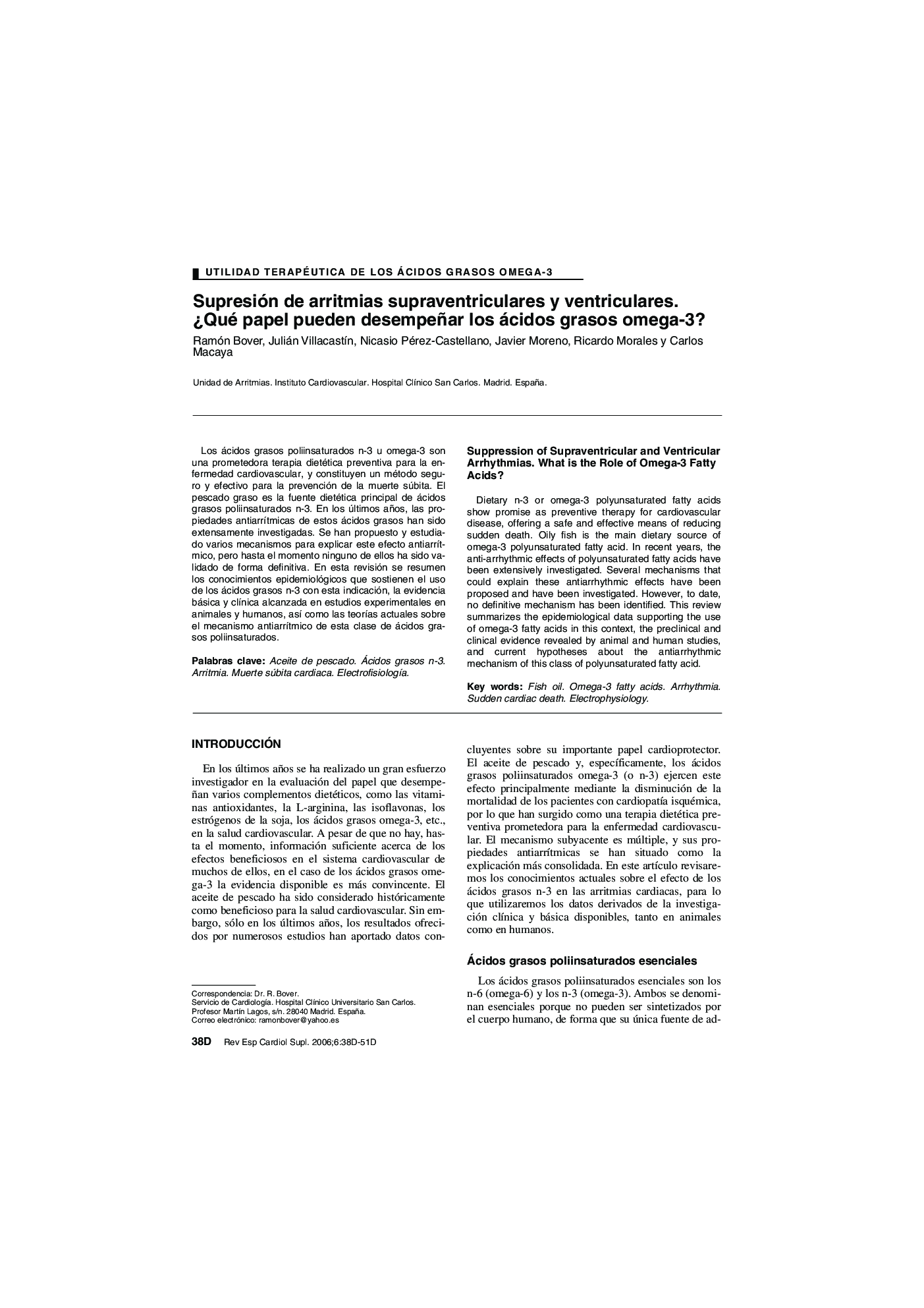| Article ID | Journal | Published Year | Pages | File Type |
|---|---|---|---|---|
| 3019755 | Revista Española de Cardiología Suplementos | 2006 | 14 Pages |
Abstract
Dietary n-3 or omega-3 polyunsaturated fatty acids show promise as preventive therapy for cardiovascular disease, offering a safe and effective means of reducing sudden death. Oily fish is the main dietary source of omega-3 polyunsaturated fatty acid. In recent years, the anti-arrhythmic effects of polyunsaturated fatty acids have been extensively investigated. Several mechanisms that could explain these antiarrhythmic effects have been proposed and have been investigated. However, to date, no definitive mechanism has been identified. This review summarizes the epidemiological data supporting the use of omega-3 fatty acids in this context, the preclinical and clinical evidence revealed by animal and human studies, and current hypotheses about the antiarrhythmic mechanism of this class of polyunsaturated fatty acid.
Keywords
Related Topics
Health Sciences
Medicine and Dentistry
Cardiology and Cardiovascular Medicine
Authors
Ramón Bover, Julián VillacastÃn, Nicasio Pérez-Castellano, Javier Moreno, Ricardo Morales, Carlos Macaya,
